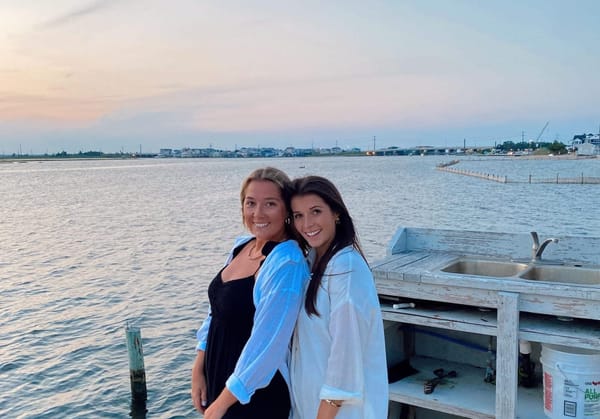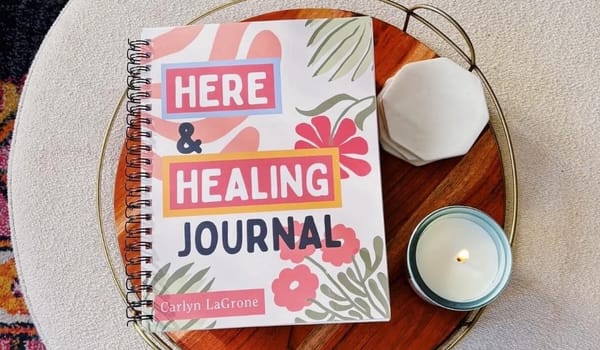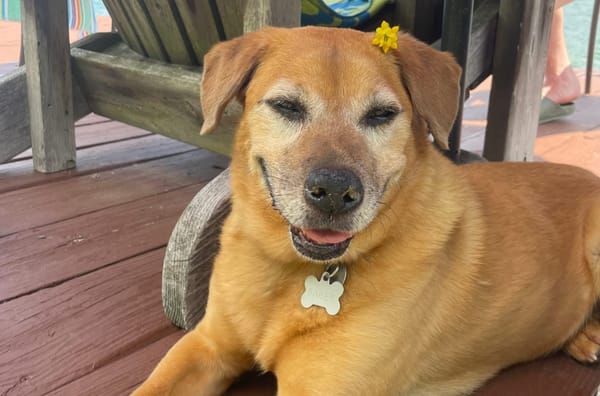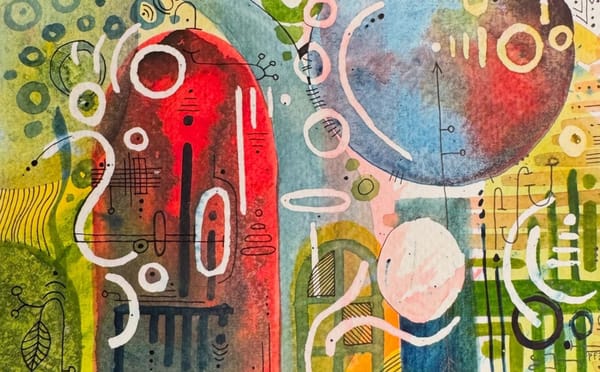Emily’s Story: We Are More Than Our Bodies.
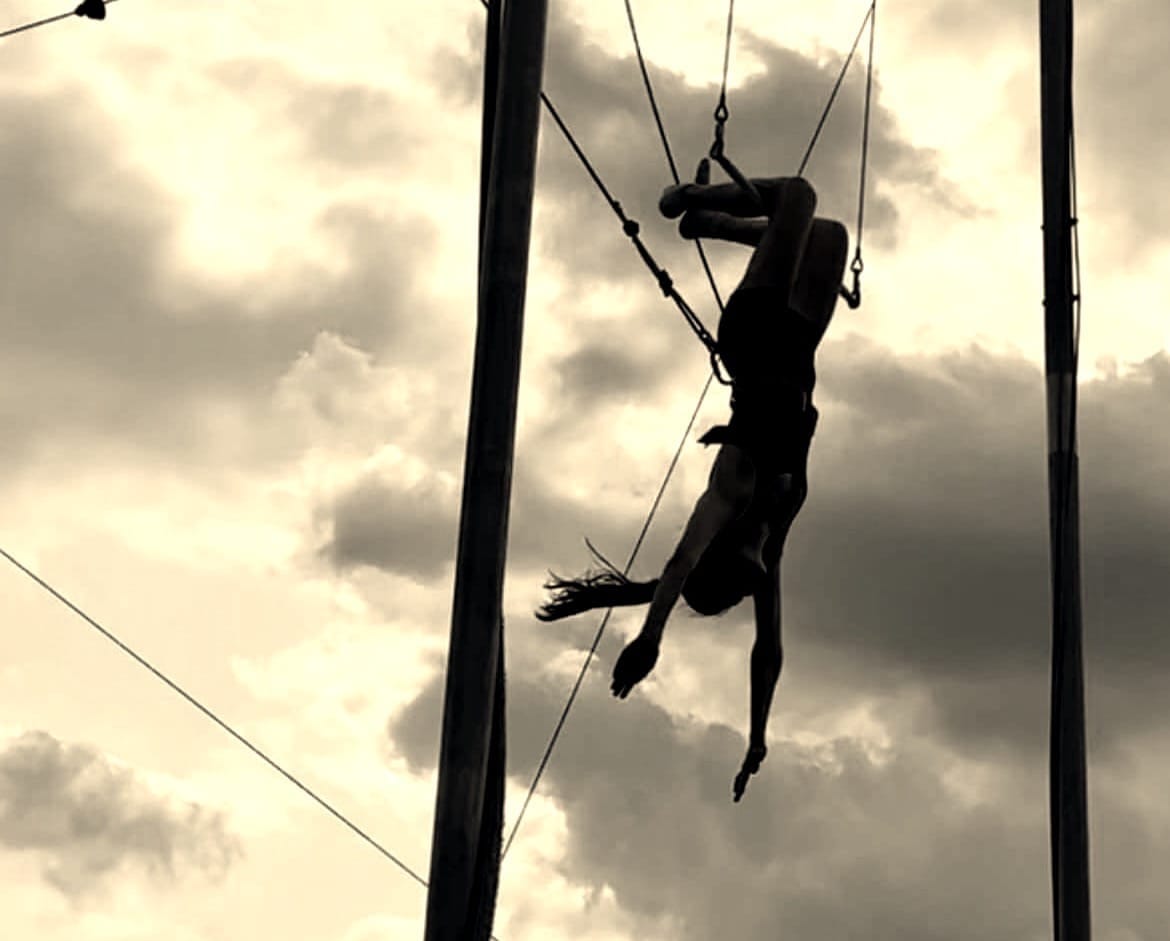
Emily Lubin was a little girl who loved performing for her family — funny, full of life, yet already aware that her body was being judged.
For as long as she can remember, she was critiqued and picked apart for her appearance.
“I was about 10 years old, and I was doing this performance for my family. I’ve always had a lot of energy. I liked being funny and entertaining people…
And I remember my great-grandmother saying to my mom, ‘Wow, she has a lot of energy for somebody with so much meat on her bones.’
There were always comments. It wasn’t something I was protected from in any way — ever.”
Now the host of RIP Diets and former co-host of Diet Starts Tomorrow and Good Bodies on the Betches Media network, Emily uses humor and honesty to discuss diet culture and mental health.
Though Emily was always aware of her weight, her disordered eating didn’t begin until age 10, when she was sent to fat camp. Advertised as a “New Image” camp, the brochures promised sports, self-esteem, and fun — but she quickly realized it was a weight-loss program.
Each morning started with exercise; portions were small, and seconds weren’t allowed.
They participated in group counseling sessions where they shared "non-scale wins," centering around weight loss.
"I remember this girl saying, 'Yesterday at lunch, these other girls were adding sugar packets to their lemonade, but I didn't do that because I'm here for a reason.' And we all gave her a standing ovation for limiting her sugar intake."
After four weeks, Emily lost 10 pounds — but, like most restrictive diets, the weight returned once she got home.
"It's so damaging to a child's psyche, but on top of that, it doesn't even work."
"All it did was reinforce what I already knew, which was that skinny was good, fat was bad, and I should be doing everything in my power to make myself smaller. And so that really started an unhealthy cycle for me."
The camp instilled habits and mindsets that would resurface years later, fueling her eating disorder.
As Emily got older, food became her comfort — and her biggest source of stress. "It started to be a push-pull situation of, I know I shouldn't be eating this, but I don't have another way to deal with my feelings… and then the more I tried to restrict, the more I wanted those foods."
In ninth grade, the pendulum swing of bingeing and dieting began. Throughout high school, she fluctuated in weight, cycling through extreme diets followed by loss of control.
Her disordered eating worsened in college, where the sorority scene, peer pressure, and dating culture deepened her insecurities.
Vulnerable to the constant diet talk in everyday conversations, a sorority sister casually introduced her to MyFitnessPal, a calorie-tracking app — exclaiming how crazy it was to see how many calories you could eat in a day without realizing it.
“So I thought, well — this could be interesting."
She followed the app’s recommendations and added daily sessions at Planet Fitness, feeling an addicting sense of control and empowerment.
"But then it became a game," she explained. "How can I eat less today than I did yesterday? How many calories can I save?”
“Honestly, this really sick game of, how can I outsmart other people — to not know what I'm doing or to think that what I'm doing is totally fine, normal, and healthy. That went on for a really long time."
By her senior year of college, Emily had lost 30 percent of her body weight. “I think a big part of it was that I was on my own… Nobody was watching me."
Eating disorders are a dangerous, slippery slope — especially when they go unnoticed. Her pattern deepened into restriction, bingeing, purging, and shame.
She explained, “When people ask, ‘What eating disorder did you have?’ well… a little bit of everything. But I've learned that it's a cycle. And one thing leads to another. The restriction leads to the binge. The binge leads to the purge. The purge leads to feeling guilty and ashamed. So then you start over and say, ‘okay, now I'm going to be really perfect and I'm going to restrict again.’”
"It just spiraled out of control like these things always do. I felt so sick. I felt so not like myself."
Her breaking point came over a broken jar of salsa.
By age 26, Emily had a nightly ritual: she’d buy a specific jar of salsa from a bodega and have it for dinner. One night after work, the jar slipped out of her bag and shattered on the sidewalk.
"I had barely eaten that day… And I start crying because, obviously, when you're not eating, you’re not able to regulate your emotions… And I didn't ever put it together at the time — like, oh, actually, you're malnourishing yourself, your nervous system is dysregulated, and you can't actually express your emotions in a healthy way. But yeah, I was hysterical."
She continues, "I took the jar inside and I picked out the glass as much as I could. And I ate what was left out of the jar, with these little micro shards of glass, because there was nothing else in my kitchen that was safe to eat."
"And even me saying that now — like, this salsa that had little pieces of glass was safer to eat than anything else that I or my roommate had in the kitchen — it sounds unhinged to say out loud, but that really is where I was. And I was leaning over the sink, eating, you know, a quarter of a jar of salsa that I felt was safe to eat, not contaminated with glass.
And I suddenly thought, wow, I really need help. I really can't do this by myself."
At that point, Emily sought recovery. With little income from her full-time job at a catering company, she Googled free therapy and found a group session in New York.
"It helped, but it wasn’t enough," she says. "I asked the leader if she knew anyone who specialized in eating disorders, and she connected me to a therapist."
That marked the beginning of her journey toward healing.
Eating disorder recovery is slow and rarely straightforward. It’s a nonlinear path — full of push and pull, progress and relapse, and the constant battle between what you know and what you do.
It’s an attempt to rebuild a sense of self from the inside out, after years of feeling like a shell — disconnected and diminished.
"There were years when I was trying to recover, but not committing," Emily admits. "I wanted to be better, but the eating disorder didn’t want to let go."
Eventually, she found her own rhythm. She started small, with one goal per week.
At the same time, Social media made recovery harder by normalizing disordered eating and promoting restriction as “wellness.”
She wanted to counter that narrative. While interning for one of her favorite childhood podcasts, Keith and The Girl, and balancing a catering job and stand-up comedy, she co-launched her first show at 25 with a friend — The Hot Mess Comedy Hour, which blended comedy and mental health.
In 2020, she finally felt she had reached true recovery and embraced intuitive eating. That year, she launched RIP Diets, a solo podcast dedicated to rebelling against beauty standards.
"I had been listening to podcasts by dieticians talking about intuitive eating… And I thought — there needs to be a podcast like this that isn’t so boring… Can I repackage this content about intuitive eating in a more entertaining, dare I say, funny way?"
Her fresh approach caught the attention of Betches, the creators of Diet Starts Tomorrow, and they invited her to join as the new co-host. She stayed for two and a half years as the show evolved into Good Bodies.
Recently, she stepped back from Betches to return to RIP Diets, launching a new season.
Though she’s in solid recovery now, Emily explains that the work never truly ends. Recovery is an ongoing practice.
Whether or not you struggle with an eating disorder, it’s nearly impossible to navigate the world without being aware of body image and beauty standards. Diets and food are constantly marketed as top priorities we should focus on.
She resonates with those facing body image struggles, disordered eating, or the everyday challenges of surviving in a world that judges women by their bodies — before seeing their intelligence, empathy, humor, or voice.
Through each lighthearted, satirical episode, she inspires women and reminds listeners: we are more than our bodies.
Emily was once a little girl who dreamed of becoming the entertainer she is today — but she was convinced others only saw her weight. Through recovery, she has reclaimed her true self: the ambitious little girl at her core, no longer chasing an impossible, ever-moving goal.
She grounds herself in a mindset she holds close — the Serenity Prayer: “Grant me the serenity to accept the things I cannot change, the courage to change the things I can, and the wisdom to know the difference.”

